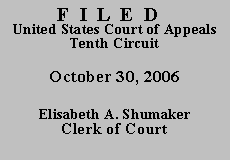

| THOMAS A. BERCHIOLLY,
v.
DUKE TERRELL, Warden, USP-Leavenworth; BUREAU OF PRISONS |
|
Thomas Berchiolly, a federal prisoner proceeding pro se, appeals the District Court's denial of his petition for a writ of habeas corpus pursuant to 28 U.S.C. § 2241. He challenges the Bureau of Prison's ("BOP") determination that he is ineligible for a sentence reduction under 18 U.S.C. § 3621(e). We take jurisdiction under 28 U.S.C. § 1291 and AFFIRM.
Mr. Berchiolly is currently serving a sentence for conspiracy to distribute cocaine and possession with intent to distribute cocaine. His 188-month sentence includes a two-point enhancement under U.S. Sentencing Guidelines Manual ("U.S.S.G.") § 2D1.1(b)(1) for the possession of a firearm during the commission of the offense. At the sentencing hearing, the District Court recommended that Mr. Berchiolly be placed in the BOP's residential drug abuse treatment program ("RDAP"). He successfully completed the RDAP on August 16, 2006.
Under 18 U.S.C. § 3621(e), the BOP has discretion to release inmates "convicted of a nonviolent offense" up to one year early upon their successful completion of the RDAP. 18 U.S.C. § 3621(e)(2)(B). The statute does not define "convicted of a nonviolent offense," nor does it establish any additional criteria for determining eligibility for a sentence reduction. To implement § 3621(e)(2)(B), the BOP published a regulation which provides in relevant part that inmates whose current offense is a felony are not eligible for early release, even after successful completion of the RDAP, if the felony involved the "carrying, possession, or use of a firearm or other dangerous weapon." 28 C.F.R. § 550.58(a)(1)(vi)(B). Based on this regulation, BOP officials advised Mr. Berchiolly, whose sentence was enhanced for possession of a firearm, that although he was eligible for the RDAP, he would not be eligible for early release. Mr. Berchiolly takes issue with this regulation, arguing that he was "convicted" of only a nonviolent offense--conspiracy and possession with intent to distribute cocaine--and that it was only the sentencing enhancement for the possession of a firearm that could be characterized as "violent." Therefore, he contends, the regulation is invalid.
This court found such an argument persuasive in Ward v. Booker, 202 F.3d 1249, 1256 (10th Cir. 2000). We held that 28 C.F.R. § 550.58(a)(1)(vi)(B) was not a valid exercise of the BOP's regulatory authority because the statute addresses only convictions, but the regulation permits categorical denial of early release based upon a sentencing enhancement. Ward was abrogated, however, by a later decision of the Supreme Court. See Lo pez v. Davis, 531 U.S. 230 (2001). The Court concluded that the most natural reading of the statute is that the BOP "'may' reduce the sentence of a nonviolent offender who has successfully completed a drug treatment program," but also may not. Id . at 241 (emphasis added). In other words, Congress's choice of permissive language indicates that the BOP "has the authority, but not the duty, . . . to reduce [the prisoner's] term of imprisonment." Id. The Court further concluded that the statute does not require eligibility determinations to be made on a case-by-case basis, but that the BOP is free to make categorical determinations of eligibility, which avoids the "favoritism, disunity, and inconsistency" that could befall a case-by-case approach. Id. at 244. In sum, Ward is no longer good law.
Lopez would appear to settle this matter. Nevertheless, Mr. Berchiolly argues that Un ited States v. Booker, 543 U.S. 220, 244 (2005) (holding, in part, that the use of judicial fact-finding to enhance a sentence violates the Sixth Amendment), has changed the legal landscape relative to this issue. He contends that his enhanced sentence violates his Sixth Amendment rights as stated in Booker, and therefore, the BOP cannot use this illegally enhanced sentence to deny his early release. We disagree. Mr. Berchiolly's sentence became final well before January 12, 2005, the effective date of Booker. Booker does not apply retroactively to cases on collateral review, U nited States v. Bellamy, 411 F.3d 1182, 1188 (10th Cir. 2005), and as such, he may not benefit from the holding in that case.
For the foregoing reasons, we AFFIRM.
ENTERED FOR THE COURT,
Deanell Reece Tacha
Chief Circuit Judge
*.This order and judgment is not binding precedent, except under the doctrines of law of the case, res judicata, and collateral estoppel. This court generally disfavors the citation of orders and judgments; nevertheless, an order and judgment may be cited under the terms and conditions of 10th Cir. R. 36.3.